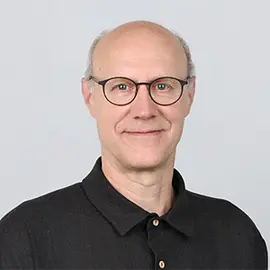Camps and Camp-Like Settings in Urban Environments: Bridging Humanitarian and Development Activities (SNIS)
This project identifies a gap between standardized emergency refugee aid structures (camps and camp-like settings) and the current global trend toward proactive, human-centered urban development. Using the example of accommodations in Jordan, Moldova, and Switzerland, it explores the idea of planning camps as urban neighborhoods.
Description
This project links two hitherto loosely connected issues, aiming to address one of the greatest challenges facing global society: providing refugees with life chances from the outset of displacement. It acknowledges a shortfall between the standardized refugee aid structures (camps and camp-like settings) and the current global trend of proactive, human-centered urban development.
The project aims to explore the connections between emergency and reception structures to bridge humanitarian and development efforts. The project fills this gap by prioritizing the role of planning. As a scientific discipline that theorizes the social divide and a professional field involved in camp planning and urban development, planning has the capacity to offer guidance to policy areas such as migration and asylum policy. This approach has the potential to facilitate a more sustainable socio-spatial and economic integration, thereby reducing the risk of exclusion and decline.
The research targets NGOs, IOs, state and non-state actors, refugees, politicians, and urban planners. To delve into the socio-spatial dynamics of the camp we use qualitative hermeneutic methods and quantitative spatial analysis. Our research team, comprising 9 scholars (NGO workers/professionals, research fellows, and professors), is spread across our case studies in Moldova, Jordan, and Switzerland.
For the scientific community, we support a reflection about camps as neighborhoods. For the professional community, we endeavor to illustrate the potential influence of planning on the social cohesiveness and urban integration of refugees. Furthermore, we commit to delivering scientific articles, a policy brief and a website/Facebook page delineating the implications of our findings to the stakeholders and refugees.
Key data
Projectlead
Dr. Hind Al-Shoubaki (Fachhochschule Nordwestschweiz FHNW)
Co-Projectlead
Project team
Ciara Patterson (Maastricht University), Prof. Dr. Wa'ed Alshoubaki (University of Jordan), Prof. Dr. Zaid Eyadat (University of Jordan), Reem Saleh (University of Jordan), Alexandru Guigov (Moldova State University), Inga Grigoriu (Moldova State University)
Project partners
Fachhochschule Nordwestschweiz FHNW; Maastricht University / Economic Research Institute on Innovation and Technology; University of Jordan / School of Business and Centre for Strategic Studies; Moldova State University / Institute of Legal, Political and Sociological Research
Project status
ongoing, started 01/2025
Institute/Centre
Institute of Diversity and Social Integration (IVGT)
Funding partner
Swiss Network for international Studies SNIS
Project budget
294'100 CHF
